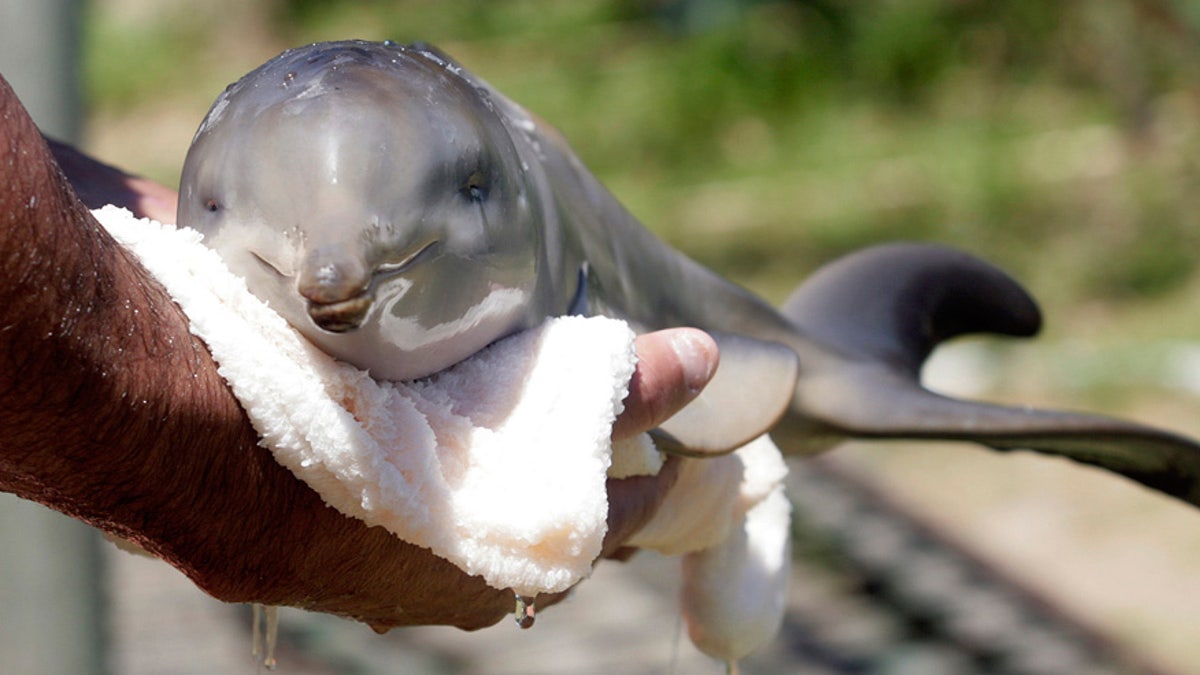
A wildlife conversationalist rescues a baby La Plata dolphin in Uruguay. (Reuters)
It has been less than a month since the last recorded incident of “tourists behaving badly,” and yet here we are again: A baby dolphin in Argentina has died at the hands of selfie-taking beachgoers.
The Argentinian newspaper La Capital reports that on Sunday, it was pulled from the ocean by a hoard of tourists in San Bernando, 200 miles south of Buenos Aires. The small creature was still alive when it was taken from the water, and video footage posted on YouTube captures a group of people crowding and petting it, rather than releasing it back into the water.
According to the paper, the dolphin later died.
More From Conde Nast Traveler
“He was young and came to the shore. They could have returned him to the water — in fact, he was breathing,” a bystander quoted in La Capital told local TV news station C5N on Sunday. “But everyone started taking photos and touching him. They said he was already dead.”
It’s the second time in a year that this has occurred in Argentina alone: In February 2016, a rare La Plata baby dolphin died after tourists in the resort of Santa Teresita removed it from the water to pass around and take selfies with, eventually leaving it in the sand.
Vida Silvestre, a wildlife foundation in the country, has warned people against removing dolphins from the ocean in the past.
The trend of selfies-gone-wrong is, of course, not exclusive to dolphins. Last year, two peacocks at a zoo in China died from stress after visitors grabbed them for a selfie, and a woman in Yellowstone National Park was gored by a bison when she attempted to snap a photo in front of it.
Meanwhile, the waterfalls and forests of Croatia’s Plitvice Lakes National Park have suffered extensive damage due to tourists straying from trails for photo-ops, and several statues and artworks in Europe have been destroyed by people clambering to take a photo.
It’s no surprise, then, that landmarks around the world have started to ban the ubiquitous social media menace, or, at the very least, clamp down on selfie sticks.
See 11 Places to Visit Before They're Lost to Climate Change




















